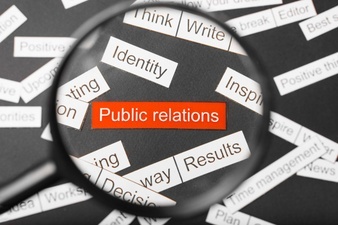Table Of Contents
Marketing and Public Relations: The Key Differences Explained
Last Updated on: November 16th, 2024
Marketing and public relations are two crucial parts of any successful business.
But they can be confusing and unclear. What do they mean, what’s involved, and what’s the difference between them?
Keep reading to find out the difference between Marketing and Public Relations, and how you can use them to your advantage.
Different Goals:">Different Goals:
Marketing is primarily sales-focused. It aims to promote or sell a specific product or service to customers. It tries to reach consumers to make them think, believe, or behave in a certain way. This then supports your business and increases revenue. But that’s not the job of a press release distribution held by a PR agency.
Businesses use public relations to create and maintain a positive public reputation, such as concentrating on venture capital pr. It’s a way to sell your business or brand. It focuses on managing communication between your company and its key audiences to create and improve your image. Businesses may choose to handle their PR themselves, or work with a professional agency like elitelawyermanagement.com to make sure that their image is the best it can possibly be.
The Target Audience:">The Target Audience:

Marketing aims to reach current and potential customers. It encourages them to support your business. That’s why all marketing content focuses on your customers and their needs.
Public relations activities have a wider target audience. They aim to maintain positive relationships with anyone who has an interest in the business. This can be customers, employees, shareholders, suppliers, and members of the media.
The direction of Communication:">The direction of Communication:

Marketing is a one-way form of communication only. It goes from your business to your customer. The aim is to encourage the customer to behave in a certain way and increase sales. You are not trying to engage them in conversation.
In comparison, public relations are two-way forms of communication. The aim is to develop a mutually beneficial relationship between your business and your audience.
Public relations also respond to the feedback from the public and adapt messaging as needed. This helps promote the most positive image possible.
What do You do?">What do You do?
Marketing spend is expected to grow by 14% in 2021. It is an important and valued aspect of many successful businesses. It involves running promotions, campaigns, and advertising. All of these activities aim to increase business sales and income.
Examples of daily marketing activities include:
- Customer and industry research to help develop marketing campaigns
- Creating, running, or monitoring an advertising campaign for a new product or service
- Creating product or campaign materials like social media content, website landing pages, or posters
- Buying advertising space on media platforms for a campaign
- Emails, newsletters, and communications to existing and potential customers to encourage purchases
Public relations focuses on reputation management. Public relations professionals work to generate positive media coverage and public opinion. It is best to stick to ideas that help promote a positive reputation, instead of tricks like this.
Examples of common public relations activities include:
- Writing and distributing press releases about the launch of a product launch or a campaign
- Pitching positive stories and announcements to the media
- Speaking opportunities at high-profile and respected events
- Establishing and maintaining relationships with the media and influencers in your field
- Managing and updating company branding, messaging, and communications
Message Trust, Legitimacy, and Reliability:">Message Trust, Legitimacy, and Reliability:

In general, people consider public relations messaging to be more trustworthy, legitimate, and reliable than marketing materials.
Your customers and target audience are more likely to recognize marketing messages as targeted advertising. Your audience is likely to recognize that your marketing aims to increase sales.
However, public relations messages are more likely to be trusted by customers and the public. People are more likely to trust third-party articles, journalists, and the opinions of industry experts. These are considered more reliable than a company’s marketing materials.
Short-Term or Long-Term:">Short-Term or Long-Term:
Marketing projects and campaigns are relatively short-term. They encourage customers to act immediately, encouraged by a specific incentive. Marketing efforts may focus on a specific product or service for a specific period.
In comparison, public relations should be seen as a long-term business investment. It takes time to develop your reputation amongst your key audiences. You may not see benefits immediately, but you will see them in the future.
Measuring Success:">Measuring Success:
As marketing and public relations have different goals, they measure success in different ways. Measuring success in marketing may involve some of these criteria:
- Meeting or succeeding sales and income goals
- Making more profit on the sales of the product or service compared to the amount spent on the marketing; this is known as the return on investment (ROI)
- Creating interest in a specific product, service, or the business overall
In comparison, public relations may consider some of these to be a sign of success:
- Positive press in relevant publications and platforms about a specific product, service, or the business
- A powerful speech at a high-profile event that leads to positive press
- Winning high-profile and respected awards
- Interest from social media, journalists, industry influencers, and the public about the business
The Overlap:">The Overlap:
Although they are different and distinct, there is a natural overlap between marketing and public relations.
You can’t do marketing without public relations. If your public relations are weak and your customers aren’t connecting with your business or brand, then they won’t buy your products.
You can’t do public relations without marketing. If your marketing does not promote high-quality products, then your business won’t develop a positive reputation.
Differences Between Marketing and Public Relations:">Differences Between Marketing and Public Relations:
Marketing and public relations are two very important, and distinct, parts of any successful business.
Marketing aims to sell products or services. Public relations work to increase the popularity and reputation of your business. These are intertwined but have distinct goals and actions.
Was this helpful? Then take a look at some of our other marketing and social articles for more ideas.














